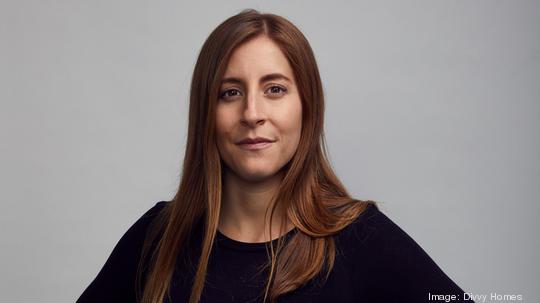
Divvy Homes, which started in Cleveland with its rent-to-own proptech product, has big hiring and growth plans after raising $200 million in a Series D round Friday.
The financing was co-led by Tiger Global Management and Caffeinated Capital.
The latest financing placed a valuation on the company of about $2 billion — quadruple the level reached just in February, when it raised $110 million. That’s a sign of the enthusiasm investors have for proptech these days. (See how the proptech world is expanding in the cover story of this week's Business Times print edition.)
The San Francisco-based company offers a modern version of a rent-to-own program that allows home buyers to choose an eligible home that Divvy buys and rents to the client, who works on saving the money to eventually qualify for a mortgage.
Divvy’s offering for clients includes financial counseling and about 25% of the monthly rent payment going into a savings account to put toward the eventual downpayment. Clients also put 1% to 2% down to participate in the Divvy program.
Clients have the option of walking away from the rented Divvy home and getting their downpayment savings balance minus a 2% fee.
“We’re the first real estate platform that helps you save for a down payment while you live in your dream home,” said Adena Hefets, co-founder and CEO. “We’re a tech-driven real estate platform, not a rental business. We are a homeownership program, not a landlord.”
With the fresh capital, Divvy plans to build out its channel working with real estate agents, a key source of client referrals. It also plans to add 75 new hires to its workforce of about 150 by year-end. The company operates offices in San Francisco and Denver, but has employees across the country.
“I call it ‘flexible first.’ You want to work remotely, great. You want to be in an office, great. We’ll do whatever you want,” Hefets told me. “I don’t care where you work. You could work in Antarctica for all I care. Just do good work.”
Divvy Homes is considering expanding into the Carolinas as well as Las Vegas and Detroit.
To help offset the risk of buying thousands of homes on behalf of clients, the company only holds about half the homes on its balance sheet with outside investors holding the balance. Divvy also avoids working in high-priced markets, such as San Francisco and New York, to spread its capital across more homes.
What the company would pay on one house in the Bay Area could buy 10 in Cleveland, Hefets said.
Divvy has closed on more homes this year than it has done cumulatively in the preceding years since its founding in 2017.
There may be a made-for-Netflix movie in Hefets' journey into proptech, going from summer analyst at Goldman Sachs in 2007 as the global financial system was careening toward collapse into the worlds of venture capital, private equity and fintech. At one point she spent about a year at Square, where she helped launch Square Capital.
She founded Divvy Homes with Alex Klarfeld and Nick Clark in 2017 when they saw an opportunity to provide another path to homeownership for those wanting to buy a house but lacked the cash or ability to get a mortgage.
Hefets shared with me some of the candid conversations she had in getting Divvy off the ground, including her conversations with rental-portfolio CEOs in which she discussed the first market she wanted to tackle — Cleveland.
The CEOs were rather blunt in their assessment, she recalled them saying: “That’s the worst idea we’ve ever heard of. No one goes to Cleveland. Atlanta is the place you should be.”
So Divvy Homes began in Cleveland and Atlanta. Today, the two cities are among Divvy’s strongest markets, Hefets said.
Cleveland homes are solidly in Divvy’s sweet spot, which are those selling for between $150,000 and $350,000.
Hefets recalled that potential investors were initially surprised that middle-class Americans would have trouble buying a house for $150,000, which looks like a bargain compared to the Bay Area’s high-priced real estate.
“Have you guys ever left the Bay Area?” Hefets recalls telling the prospective investors. “There are very few startups that build for middle-income families and help support them in something as important as buying a house.”






